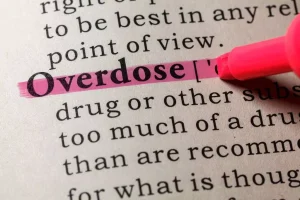Sober living
Alcohol Intolerance: Symptoms, Sudden Onset & Later in Life Intolerance
If at any time during this process you begin to develop unpleasant withdrawal symptoms, such as nausea, vomiting, insomnia, or seizures, it is important to consult your doctor right away. Such symptoms indicate that physical dependence on alcohol has formed, and it is necessary to participate in a formal detox program to ensure your safety. Researchers have found there are a few different types of tolerance that people develop in response to alcohol use.
- Having a high tolerance for alcohol can be a sign of alcohol use disorder, also known as alcohol abuse or an addiction to alcohol.
- Genetic differences do account for some differences in alcohol tolerance, which in some cases fall along ethnic lines.
- Tolerance is an important factor in understanding our drinking habits.
- For this reason, a person who has sound mental functions and can have coordinated conversations may show impairment when it comes to activities that involve eye-hand coordination such as driving.
- Alcohol withdrawal symptoms develop if someone who is dependent on alcohol (i.e. has alcohol dependence) stops drinking very suddenly, or goes too long without alcohol.
Signs of a Functional Alcoholic
If you have any of these symptoms or you are with someone who does, you should immediately seek emergency help by calling 911. The National Institute of Health suggests that loved ones should start by talking about their concerns. Instead, voice your concerns, share how their drinking is affecting others, and suggest ways that you can help them talk to a doctor or join a support group. If you are concerned about your loved one’s drinking, it can be helpful to join a support group such as Al-Anon.
Risky Situations
Consequently, the person may be prompted to drink more, which can impair those bodily functions that do not develop acute tolerance. Sometimes drinkers will quickly develop a tolerance to the unpleasant effects of intoxication, such as becoming nauseous or dizzy, while not developing build up alcohol tolerance a tolerance to the pleasurable effects. Like every other drug or compound, ethanol is metabolized by the liver and stomach, and the metabolism of ethanol in individuals varies. This variation is due to levels of a metabolic enzyme called alcohol dehydrogenase (ADH) in the body.
Alcohol Tolerance and Changes in the Brain
Psychological dependence means that you feel you need alcohol when experiencing negative emotions.7 For example, you might feel very anxious in social situations and need alcohol at a party. If alcohol is not available, you would endure the party with a great deal of discomfort or distress. Alcohol allergy is an immune system response — your immune system overreacts to an ingredient in alcohol. You may be allergic to one of the substances in alcohol (a chemical, grain or preservative, such as sulfite).
Drinking doesn’t just affect the individual; it affects the entire family unit. One of the main reasons that people who misuse alcohol seek help is the eventual negative consequences of their alcohol consumption. When the pain or embarrassment gets bad enough, they can no longer deny that their drinking needs to be addressed. A “functional alcoholic” (or “high-functioning alcoholic”) isn’t a formal medical diagnosis, but a term used colloquially to describe a person who is dependent upon alcohol but can still function in society. The term “currently-functioning” may be used since it’s not likely they will remain functional (and not misuse alcohol) indefinitely. While the term “alcoholic” was used in the past but is now viewed as outdated and stigmatizing.
- Large amounts of alcohol cause slurred speech, lack of coordination and blurred vision.
- In some cases, reactions can be triggered by a true allergy to a grain such as corn, wheat or rye or to another substance in alcoholic beverages.
- The term “currently-functioning” may be used since it’s not likely they will remain functional (and not misuse alcohol) indefinitely.
- Some enzymes are present that can metabolize the substance, but at a prolonged rate, and they cannot compensate for the ADH deficiency.
What Is Sudden Onset Alcohol Intolerance?
However, if you have a serious allergy-like reaction following drinking alcohol, consult a medical professional. Unfortunately, even when functional alcoholics begin to recognize that they have a drinking problem, they still resist reaching out for help. By the time they admit the problem, their withdrawal symptoms—which can begin within a few hours after their last drink—can become more and more severe. If you have any unpleasant symptoms after drinking alcohol, see your healthcare provider. Your provider can help get to the bottom of your symptoms and recommend the best next steps.
- We publish material that is researched, cited, edited and reviewed by licensed medical professionals.
- Usually, one standard drink is metabolized in one hour, but people who have little or no ADH have no simple way of metabolizing the alcohol.
- The genetic predisposition to alcohol tolerance could contribute to increased alcohol consumption and the risk of alcoholism in the sons of fathers with AUD.
- Alcohol Misuse and TreatmentIf you are concerned about alcohol tolerance, you may also be wondering about alcohol misuse and the possibility of needing treatment.
- Use your head, take it slow and easy, have fun, then take a friggin’ cab home.
- The individual may find themselves feeling no sign of intoxication; this may lead to dependency and alcohol addiction.
- Research has revealed that some aspects of alcohol tolerance are genetic.







